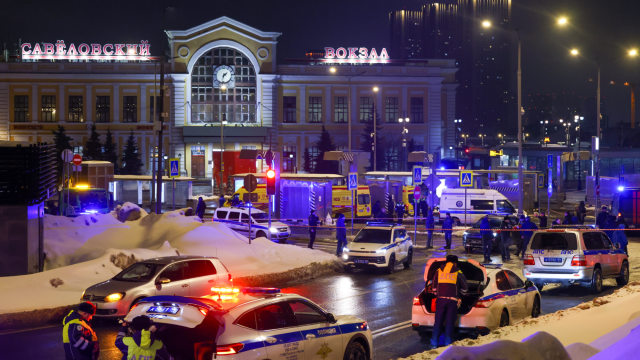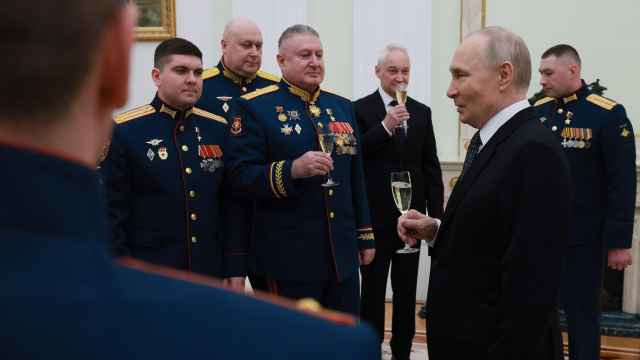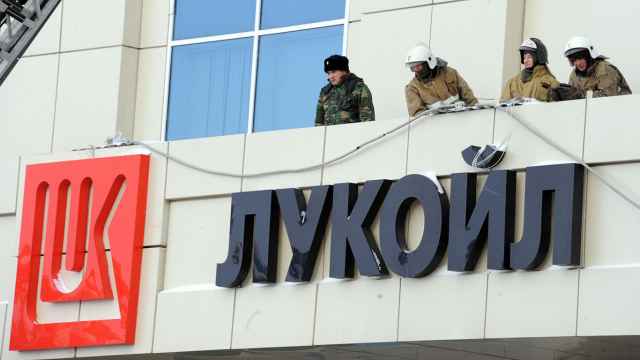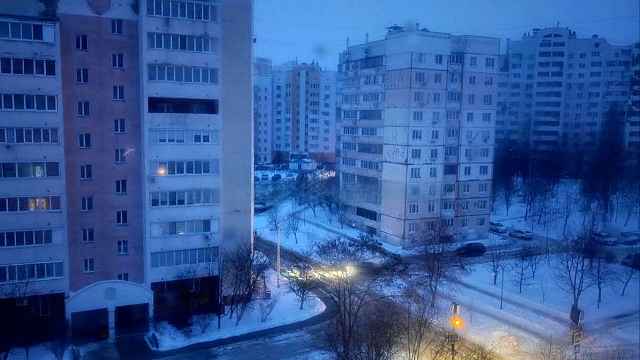The League of Voters announced Wednesday that it does not acknowledge the results of the March 4 presidential election, saying the number of people voting in "special circumstances" had inexplicably increased by 3 million compared with December's State Duma vote.
The special circumstances highlighted by the group included absentee ballots, early voting and voting outside polling stations, practices reserved for voters who cannot cast ballots in their home district on election day.
The league estimates that Vladimir Putin should have received 53 percent of the vote, 10.3 percentage points lower than the official results, political analyst and founding member Dmitry Oreshkin told journalists.
Oreshkin added that billionaire Mikhail Prokhorov's vote count was affected the most. He said Prokhorov should have gained 16 percent of the vote, according to the league's findings, as opposed to his official tally of 8 percent.
"So you can see that the differences are significant," Oreshkin said.
The league's vote total for Putin roughly aligns with results calculated by independent elections watchdog Golos and the group Citizen Observer, which gave Putin 50.1 percent and 49.3 percent, respectively.
Those groups used data from copies of vote protocols submitted by election observers. Citizen Observer was the only group of the three to say Putin should have faced a runoff election.
But the League of Voters said it did not operate in the North Caucasus republics, which are notorious for returning Soviet-style results for Putin.
"We do not have a presence in Chechnya and Dagestan because to be an observer there is to risk your head," Oreshkin said.
The two regions reported 99.8 percent and 92.8 percent, respectively, for Putin.
The league is a privately funded organization set up earlier this year by 16 public figures, including author Boris Akunin and journalist Leonid Parfyonov. Its stated goal is to protect voting rights.
Musician and group co-founder Georgy Vasiliyev said the league's aim is not to question the legality of the election but rather its fairness.
"The conclusions we're making are not intended to have a relationship to the legitimacy of the election," he said. "We are not saying the election was illegal. … We are asking whether they were just, whether they were honest."
"We are talking about moral categories because if we start to judge their legality, they will sue us, and everyone knows how that will turn out," he continued. "We have no weapon other than to appeal to conscience."
Oreshkin acknowledged shortcomings in the league's data-collection methods. Its network of observers was not widespread.
But Oreshkin insisted that it had enough evidence to claim large-scale falsification. He cited examples from St. Petersburg, where in 33 of the stations monitored, the published results differed from the results observers reported.
"If we can show that there was systematic falsification in 33 stations in St. Petersburg, what do you call that if not mass falsification?" Oreshkin said. "If the system worked like that where there were observers, what might have happened in the stations where there were not?"
In one notable case at Polling Station No. 109 in St. Petersburg, an observer reported that Putin had received 554 votes, while the official results showed 966 votes for Putin, Oreshkin said.
The league also implied that Putin had gained an unfair advantage in the electoral campaign through an inappropriate use of state resources.
"One of the candidates gained an undoubted advantage by illegally using massive state resources — financial, organizational and propagandist — for his own interests," a League of Voters news release said.
United Russia Deputy Robert Shlegel launched a storm of attacks on Twitter following the group's announcements.
"The League of Voters is trying to fulfill the role for which I understand they were created. Funny guys and clearly interesting to somebody," he wrote. "As it turns out, they're just waving their hands after the fight."
On Tuesday, Putin acknowledged that violations occurred during the election, but he added that they didn't influence the results.
A Message from The Moscow Times:
Dear readers,
We are facing unprecedented challenges. Russia's Prosecutor General's Office has designated The Moscow Times as an "undesirable" organization, criminalizing our work and putting our staff at risk of prosecution. This follows our earlier unjust labeling as a "foreign agent."
These actions are direct attempts to silence independent journalism in Russia. The authorities claim our work "discredits the decisions of the Russian leadership." We see things differently: we strive to provide accurate, unbiased reporting on Russia.
We, the journalists of The Moscow Times, refuse to be silenced. But to continue our work, we need your help.
Your support, no matter how small, makes a world of difference. If you can, please support us monthly starting from just $2. It's quick to set up, and every contribution makes a significant impact.
By supporting The Moscow Times, you're defending open, independent journalism in the face of repression. Thank you for standing with us.
Remind me later.





